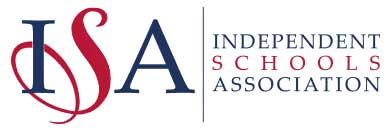Early Years
Flossie Welcomes All Pupils Into Early Years
Pattison Nursery
OUR VISION
At Pattison Nursery, we are dedicated to providing a loving, safe, and inspiring environment where every child can flourish. We recognize that high-quality early education lays the foundation for lifelong learning and development, supporting children’s physical, social, emotional, cognitive, and language growth. Through play-based learning, nurturing relationships, and strong partnerships with families, we ensure that each child develops the confidence, resilience, and curiosity needed for a lifelong love of learning.
A CREATIVE AND EXPLORATORY ENVIRONMENT
Our setting is a place where children can learn through play, explore with confidence, and express themselves creatively. We encourage natural curiosity and independent thinking, fostering a love of discovery in an inclusive and welcoming space. Our curriculum is designed to support all areas of learning and development, ensuring every child’s unique strengths are celebrated.
WORKING IN PARTNERSHIP WITH FAMILIES
We believe that strong partnerships with parents and carers are essential to each child’s success. By working closely together, we create a supportive network that nurtures each child’s individual journey. We provide open communication, guidance, and encouragement, ensuring that every child feels valued, understood, and supported in both their early years setting and at home.
BUILDING CONFIDENCE AND PERSONAL GROWTH
From their first steps with us, children are supported in developing self-confidence, independence, and emotional resilience. We help them navigate challenges, build positive relationships, and develop essential skills for school readiness. Our caring approach ensures that children feel safe, included, and empowered to express themselves and engage in meaningful learning experiences.
A QUALIFIED AND CARING TEAM
Our dedicated team consists of experienced, highly trained professionals who are passionate about early childhood education. As role models and mentors, they provide a secure and stimulating environment where children are encouraged to thrive. Through continuous professional development and the use of evidence-based practices, our staff ensure the highest standards of learning, care, and safeguarding, creating a home-away-from-home where every child is cherished.
Why Pattison Nursery?
All children work towards the Early Learning Goals, as laid out in the Early Years Foundation Stage Framework, but they go beyond these requirements in preparation for Transition into Key Stage 1. There are seven areas of learning and development that are crucial for inspiring children’s curiosity and enthusiasm for learning, for building their capacity to learn and to form relationships and thrive. The three Prime areas are:
- Communication, Language
- Physical Development
- Personal, Social and Emotional Development
The four Specific areas through which the three prime areas are strengthened and applied are:
- Literacy
- Numeracy
- Understanding of the World
- Expressive Arts and Design
Daily Routine
This is an approximate guide to the many activities each day, but will vary from day to day.
- Daily Welcome by Form Teacher
- Good Morning and Registration
- Story and singing
- Phonics
- Exploration outdoors
- Snack time
- Practical numeracy
- Topic explorations
- Carpet time and games
- Messy play and gross motor development
- Lunch
- Mindfulness
- Creative work
- Storytime and reading





